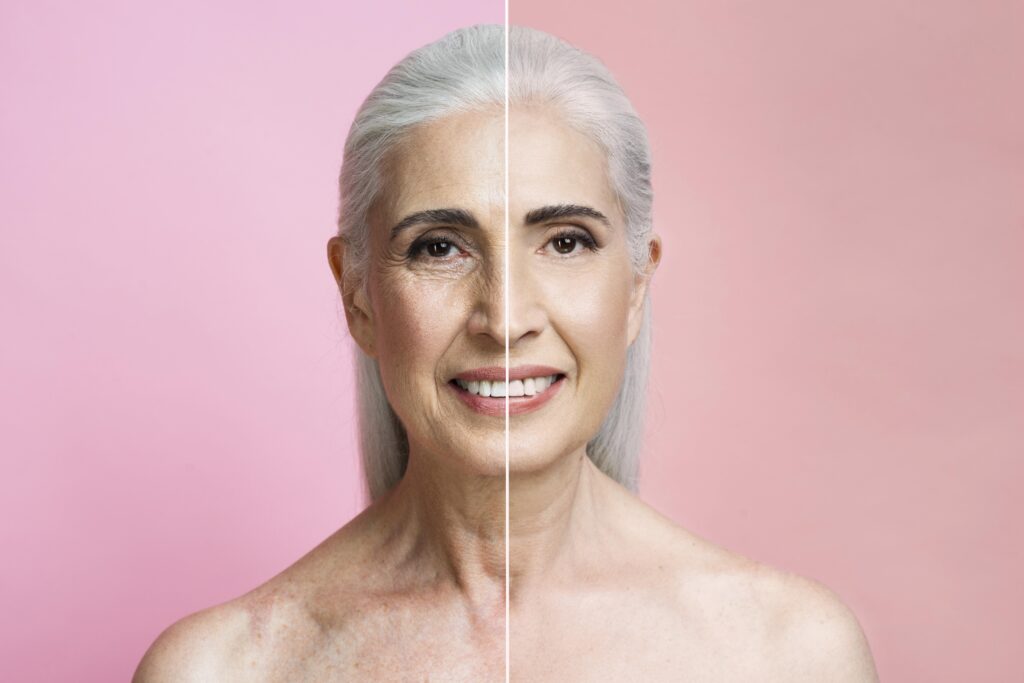Aging is inevitable — but accelerated aging is not. Many of us obsess over skincare products, supplements, and anti-aging hacks, yet overlook the subtle, routine behaviors that silently add years to our appearance, energy levels, and internal health. There’s one habit, in particular, that millions of people engage in daily — often without realizing its impact — and it may be aging you faster than you think.
In this article, we’ll uncover this daily aging accelerator, explore the science behind it, and provide practical ways to undo its effects starting today. If you're looking to maintain youthfulness, boost energy, and age gracefully, keep reading — this could change the way you live.

The Silent Culprit: Chronic Sleep Deprivation
Yes, the habit aging you faster than you think is not getting enough quality sleep. It may seem harmless at first — staying up to finish a show, scroll on your phone, or catch up on work — but over time, sleep deprivation takes a massive toll on your body and mind.
Why It’s a Problem:
Lack of sleep affects your cellular repair systems, increases inflammation, weakens immunity, and accelerates the breakdown of collagen — the protein responsible for youthful skin.
What Experts Say:
According to the National Sleep Foundation, adults need 7–9 hours of quality sleep per night. Falling short consistently leads to signs of premature aging, including:
- Wrinkles and fine lines
- Puffy eyes and dark circles
- Fatigue and brain fog
- Weight gain
- Poor skin tone
How Sleep Affects the Aging Process
1. Reduced Collagen Production
During deep sleep, your body produces collagen, which keeps skin firm and elastic. Sleep deprivation slows this process.
2. Increased Cortisol Levels
Not sleeping enough raises cortisol (the stress hormone), which breaks down skin cells, muscle, and bone — all key elements of youth.
3. Impaired Cell Regeneration
At night, your cells repair damage from environmental stressors like UV radiation. Poor sleep shortens this regeneration window.
4. Hormonal Imbalance
Poor sleep disrupts hormonal balance, especially growth hormone and melatonin — both essential for anti-aging and cellular repair.
Other Daily Habits That Accelerate Aging
While sleep deprivation is the main culprit, several other common habits can also age you faster:
1. Excessive Sugar Consumption
Sugar triggers glycation, a process that damages collagen and elastin in the skin.
2. Sedentary Lifestyle
Lack of movement slows circulation, reduces oxygen flow, and weakens muscles — speeding up aging.
3. Constant Stress
Chronic stress accelerates inflammation, disrupts sleep, and damages DNA.
4. Poor Hydration
Dehydrated skin looks older and duller. Water is crucial for detoxification and cell function.
5. Overexposure to Screens
Blue light from screens damages the skin and disrupts your circadian rhythm, impacting sleep and accelerating aging.
Signs That You’re Aging Faster Than Normal
Are you aging faster than your age suggests? Here are some signs to watch for:
- Chronic fatigue
- Sagging or thinning skin
- Early appearance of wrinkles
- Reduced muscle mass
- Brain fog and forgetfulness
- Mood swings or irritability
If several of these resonate with you, your daily habits — especially sleep — could be to blame.
How to Reverse the Damage and Slow Aging
1. Prioritize Sleep Hygiene
- Go to bed and wake up at the same time daily
- Avoid screens 1 hour before bed
- Keep your bedroom cool and dark
- Use a white noise machine or earplugs
2. Reduce Sugar Intake
- Eliminate sugary drinks
- Read food labels for hidden sugars
- Replace sweets with fruits and nuts
3. Move Daily
- Aim for 30 minutes of physical activity
- Combine cardio with strength training
- Stretch or walk every hour if you work at a desk
4. Practice Stress Reduction
- Meditate or journal daily
- Breathe deeply during moments of tension
- Limit negative news and social media exposure
5. Stay Hydrated
- Drink at least 2 liters of water a day
- Add lemon or cucumber for flavor
- Avoid excessive caffeine and alcohol
Foods That Support Youth and Longevity
Adding the right foods to your diet can counteract aging effects. Focus on:
- Berries – rich in antioxidants
- Avocados – packed with healthy fats and vitamin E
- Leafy greens – high in fiber and anti-inflammatory compounds
- Nuts and seeds – for omega-3s and minerals
- Green tea – full of catechins that fight skin damage
Anti-Aging Supplements to Consider (With Caution)
Consult a healthcare provider before taking any supplements. However, these may help slow aging:
- Collagen peptides
- Vitamin C and E
- Omega-3 fatty acids
- Resveratrol
- Magnesium
- Melatonin (for sleep regulation)
Conclusion
You don’t need to spend a fortune on anti-aging creams or medical treatments. The daily habit aging you faster than you think is likely something you can fix — starting tonight. Prioritize quality sleep, adopt healthier routines, and give your body what it needs to thrive.
Aging gracefully isn’t about stopping time — it’s about aligning your lifestyle with your biology. Break the habit of neglecting sleep and take control of your future vitality today.
Frequently Asked Questions
How much sleep do I need to prevent premature aging?
Most adults need 7–9 hours of quality sleep every night.
Can lack of sleep cause wrinkles?
Yes. Sleep deprivation impairs collagen production and increases cortisol, both of which contribute to wrinkles.
What’s the biggest lifestyle factor that causes early aging?
Chronic sleep deprivation is among the top causes, followed by poor diet and stress.
Is it possible to reverse signs of early aging?
Yes, with consistent changes in sleep, diet, hydration, and stress management.
Do supplements help reduce aging?
Some may help, especially when paired with healthy habits, but consult your doctor first.
Lamartine is an experienced researcher who produces evidence-based content focusing on health, wellness, supplements, lifestyle, and utilities. On the website holistichealthpathways.com, he offers objective, research-backed information to help readers make informed choices.



